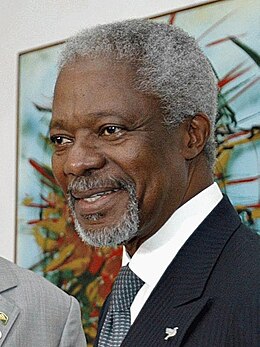 In the 1980's, Alfred Nobel who was Swedish donated his fortune to the Nobel Prizes. He dedicated the award to " the person who shall have done the most or the best work for fraternity between nations for the abolition or reduction of standing armies and for the holding and promotion of peace congresses".
In the 1980's, Alfred Nobel who was Swedish donated his fortune to the Nobel Prizes. He dedicated the award to " the person who shall have done the most or the best work for fraternity between nations for the abolition or reduction of standing armies and for the holding and promotion of peace congresses". The United Nations and its Secretary- General Kofi Annan were chosen "for their work for a better organised and more peaceful world.."

The First Peace Prize
Henry Dunant, founder of the Red Cross. shared the first Nobel Peace Prize in 1901 with Frederic Passy, a leading international pacifist of the time. In addition to humanitarian efforts and peace movements, the Nobel Peace Prize has been awarded for work in a wide range of fields including advocacy of human rights, mediation of international conflicts and arms control.
Number of Prizes
The Nobel Peace Prize has been awarded to 120 Laureates- 97 times to individuals and 23 times to organisations.
Of the 97 individuals awarded Nobel Peace Prize, 12 are woman
Organisations can win the award, two examples are the Red Cross and the Amnesty International
More information can be found at http://nobelprize.org/

